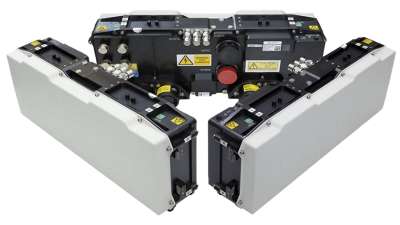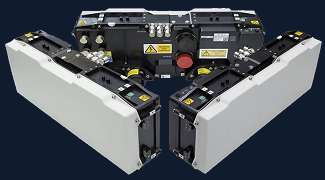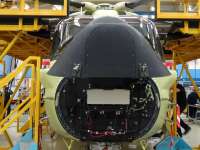Osprey
Description of the radar set, tactical-technical characteristics

Figure 1: Osprey
| Specifications | |
|---|---|
| frequency: | X-Band |
| pulse repetition time (PRT): | |
| pulse repetition frequency (PRF): | |
| pulsewidth (τ): | |
| receive time: | |
| dead time: | |
| peak power: | |
| average power: | |
| instrumented range: | 200 NM (≙ 370 km) |
| range resolution: | |
| accuracy: | |
| beamwidth: | |
| hits per scan: | |
| antenna rotation: | |
| MTBCF: | |
| MTTR: | |
Osprey
Leonardo's Osprey is an operating in X-Band radar based on a flat-panel antenna design. It has no moving parts and up to four AESA antennas positioned around the platform aircraft, each providing 120 degrees of coverage.
Each antenna weighs 11.3 kg (just under 25 pounds) and contains 256 Gallium Arsenide Transmit and Receive Modules. The antenna faces can be used in several different modes including surface search, air-to-air and synthetic aperture radar and ground moving target indication. They are controlled through a single processing unit which collects the data and displays it as presenting a single radar picture.
In American nomenclature, this radar was named AN/ZPY-8.
Source:


